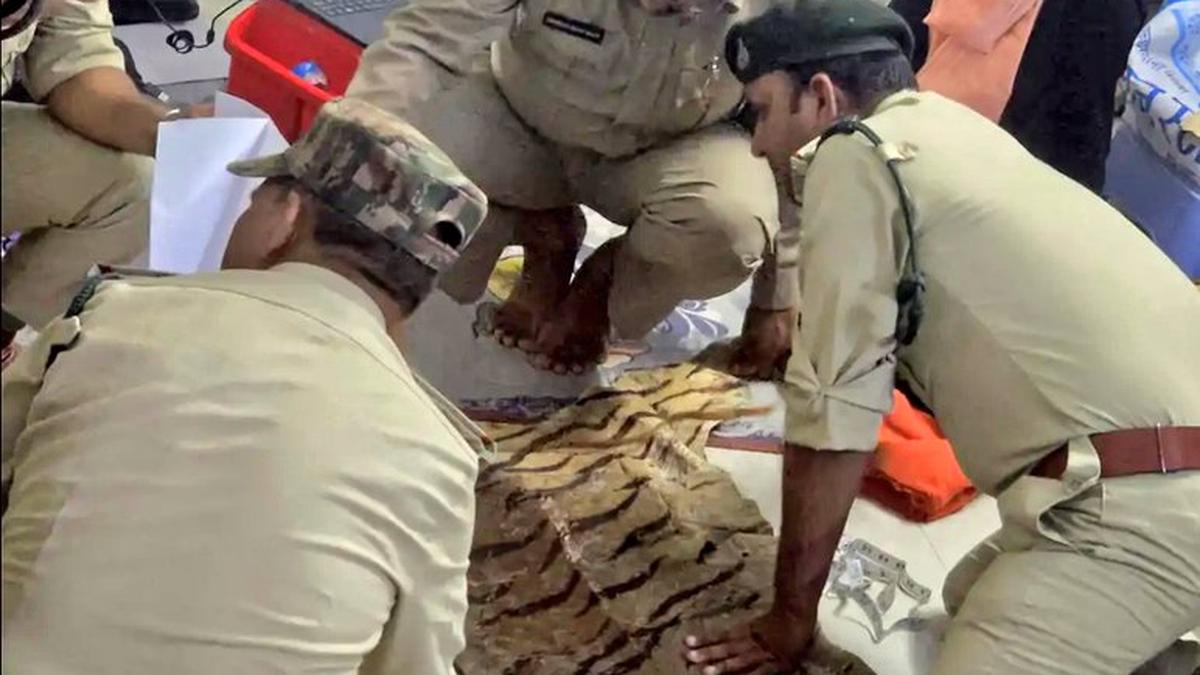Now Reading: Elderly Mother of Tribal Official Arrested After Tiger Skin Found at Home
-
01
Elderly Mother of Tribal Official Arrested After Tiger Skin Found at Home
Elderly Mother of Tribal Official Arrested After Tiger Skin Found at Home

Swift Summary
- ₹6.75 crore worth of allegedly disproportionate assets were recovered from Madhya pradesh Tribal Department official Jagdish Prasad Sarvate during raids by the Economic Offences Wing (EOW) between July 22 and 23, 2025.
- A tiger skin, approximately 5.5 feet long, was also seized from his ancestral home in Jabalpur and handed over to the Forest Department for investigation under the Wildlife Protection Act.
- Sarvate’s elderly mother, savitri Sarvate (75), was arrested by the Forest Department’s Special Task Force after admitting to using the tiger skin during worship at her home but claiming unawareness about its origin.
- The family has not produced ownership documentation for legal possession of the wildlife item as required under Indian law.
- Officials revealed that Savitri stated her father-in-law acquired the tiger skin in 1977 while living in Mandla District but did not confirm how it was sourced.
- Jagdish Prasad Sarvate is being investigated under relevant provisions of various laws including the Prevention of Corruption Act and Wildlife Protection Act.
Indian Opinion Analysis
The finding of a large cache of disproportionate assets alongside a banned wildlife item highlights significant ethical and legal concerns within government offices in Madhya Pradesh. While corruption cases are not unusual, this instance combining alleged illicit wealth with violations of wildlife protection laws raises questions about oversight mechanisms both within administrative bodies and environmental authorities responsible for regulating endangered species trade.
The arrest of Sarvate’s elderly mother further deepens public interest in this case; her admission about using such an object during worship culture reflects lingering challenges around religious practices versus conservation ethics-an area necessitating awareness campaigns on wildlife laws.
This probe could have wider implications as authorities investigate whether similar breaches exist elsewhere or if tighter enforcement may be required across departments handling sensitive positions or environmental responsibilities.
Read more: Link to Source
























